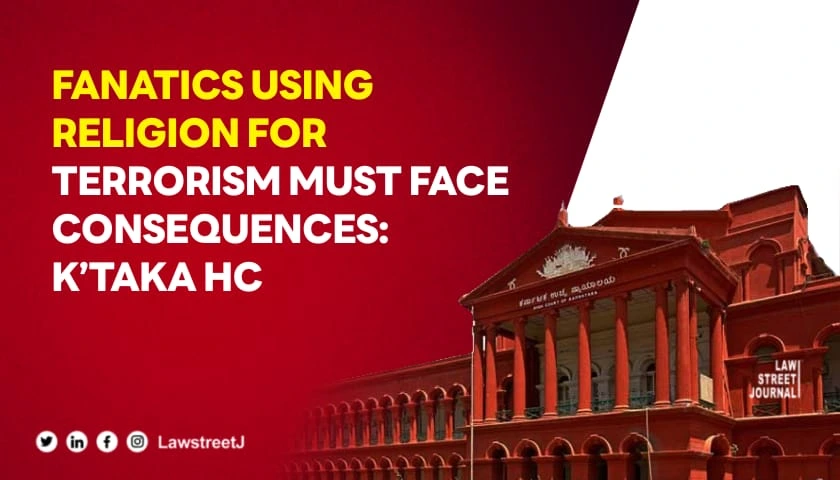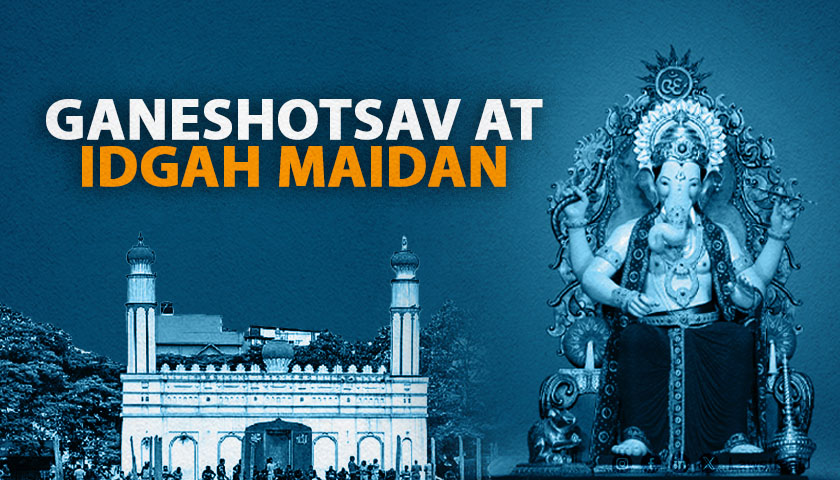Karnataka: The Karnataka High Court has dismissed a petition against the Union government’s decision to entrust the investigation into murder case of Shivamogga Bajrang Dal activist Harsha, to the National Investigation Agency (NIA), rejecting a contention by a Muslim accused that it was to target members of minority community, saying this is fallacious.
A division bench of Justices Sreenivas Harish Kumar and J M Khazi said it is not inappropriate to opine here that a decision as to existence of commission of scheduled offence of such gravity that requires investigation by the NIA must be viewed from the perspective of the Central Government and not from the perspective of the accused, for any accused for that matter does not readily accept investigation by a specialized agency like NIA.
"Terrorism has no territorial bounds; though it has nothing
to do with any particular religion, if terrorist activities are perpetrated by fanatics to achieve religious supremacy decrying the other religions and thereby pose a threat to integrity, unity and stability of the nation, people of such mind set have to blame themselves if they get into trouble," the bench said.
The court noted that the question as to whether the sanction order was issued without applying mind or is invalid for any other reason has to be thrashed out by the trial court after recording evidence.
The petition was filed by Roshan A, son of Abdul Rafeeq (Accused number 7 in the case), a resident of Shivamogga. The petitioner, along with the other accused, is facing trial for the offences under IPC sections 143, 201, 204, 212, 302, 341 and sections 16, 18, 19 and 20 of the Unlawful Activities (Prevention) Act (UAPA).
Harsha was murdered on February 20, 2022, and initially, an offence under IPC section 302 (murder), read with section 34, was taken up.
On March 21, 2022, the Union government directed the NIA to take up an investigation and the agency invoked provisions under the UAPA.
It was contended on behalf of the petitioner that provisions under the UAP Act were invoked under the guise that a terrorist act had been committed. It was further submitted that the entrustment of investigation to the NIA under section 6(5) of the NIA Act was without any application of mind.
It was also stated that in the case at hand the intention was to harass the minority community.
The Central government said that the intention of the accused was to strike terror in a section of society and hence invoking UAPA and entrusting the investigation to NIA was justified.
Going through the material, the court noted that the Union government had recorded satisfaction.
The bench also noted that there is a list of statements of witnesses and other materials placed before the sanctioning authority in the file submitted by the officer of the NIA, besides the report of the independent authority which has recommended for according sanction.
“If according to the petitioner, the sanction order was issued without applying mind or is invalid for any other reason, the same has to be thrashed out by the trial court after recording evidence. This is not a case of absence of sanction. Therefore, this contention also fails,” the bench said.
The court also rejected a contention of the petitioner is that in some other cases of murder similar to the incident in this case, investigation was not handed over to the NIA and therefore prosecuting the petitioner for stringent offences under UA(P)A is violative of equality before law.
"Without having details of other cases, the contention of the petitioner cannot be appreciated. Even otherwise, decision as to invocation of offences under UA(P)A has to be taken in the background of facts and circumstances of each case, general inference cannot be drawn," the bench said.
[Read Order]







![Karnataka High Court: Cabinet Rank Status Not Equivalent to Ministerial Position [Read Order]](/secure/uploads/2023/09/lj_2318_fc1b99b7-aeed-472b-836e-33750bedb394.jpg)


![Woman living in adultery cannot claim maintenance: Karnataka High Court [Read Order]](/secure/uploads/2023/10/lj_3083_Women_living.jpg)




